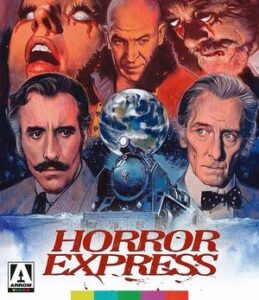There are at the time of this writing 20 days until the United States Official Election day though people are voting now by mail and in person by way of early voting and the possibility remains that closer than expected contest may delay results by days or weeks.
As we approach the critical time for our republic and for the world many people are having tense fearful reactions to Biden lead in the polls recalling Clinton’s lead that evaporated and left the nation dealing with a narcissistic corrupt man-child at the head of our government. While the only poll that reallymatters is the actual vote tally here are a few reasons to keep in mind as to why 2020’s election is not the same as 2016’s.
1) Joe Biden is not as a reviled figure as Hillary Clinton.
Rightly or wrongly Clinton carried 30 years of negative political baggage creating a contest between two despised candidates. That dynamic is missing entirely.
2) Joe Biden is consistently breaking the 50% barrier in polling.
Hillary Clinton while often outpolling Trump rarely if ever managed to score above 50% in the polls and in the final weeks of the campaign remained below that critical measure.
3) There are no major third-party candidates.
In an election as tight as 2016 with the outcome turning on less than a few hundred thousand votes nationally the presence of third-party vote drainers such as Jill Stein proved critical.
4) 2016’s ‘unthinkable’ is our reality.
In 2016 is was commonly accepted wisdom that the electorate simply would not elect Trump as President. Despite 538’s giving Trump a 1 in 3 chance of emerging victorious people simply assumed it would not happen but in 2020 we have sadly been forced to accept that it can and that it did happen. Now no one dismisses Trump’s chances as ‘unthinkable.’
5) The polling has been unusually stable.
Look at the charts from 2016 and you’ll see wild gyrations in support for the two candidates but in 2020 the difference between Trump and Biden has been fluctuating over just a few points and never enough to cause the two to swap places. Biden’s lead has remained at 6-8 points for months.
6) Trump is no longer an unknown.
While Trump in 2016 possessed in some people’s mind at almost unknown potential as President in 2020 his qualities are well known. It is now plain to all but his core support that the erratic, ignorant, insulting, and racist style reflects who he truly is and now merely a ‘show.’
7) The Electorate is motivated.
Voter turnout in 2016 was depressed and Trump winning the election received a lower percentage of votes than Romney’s losing campaign in 2012 but in 2020 early voting, mail-in voting, and fund raising all indicated a high energized voting population on track to shatter all voter turnout records.
8) 207,557 dead Americans.
2016 did not provide the stark and undeniable reality of with candidates’ failure to manage a crisis such as COVID-19 has done for the Trump administration. From the face that Trump was aware of the deadly nature early and tried to ignore it, to the reports that the administration’s considers death’s in ‘Blue States’ unimportant Trump’s handling of the pandemic has demonstrated clearly, plainly, and lethally he is utterly unfit for the office and the price we will all pay if he remains in it.
All that said the most important thing is to VOTE. In person, early, or by mail, no poll matters but that one.





